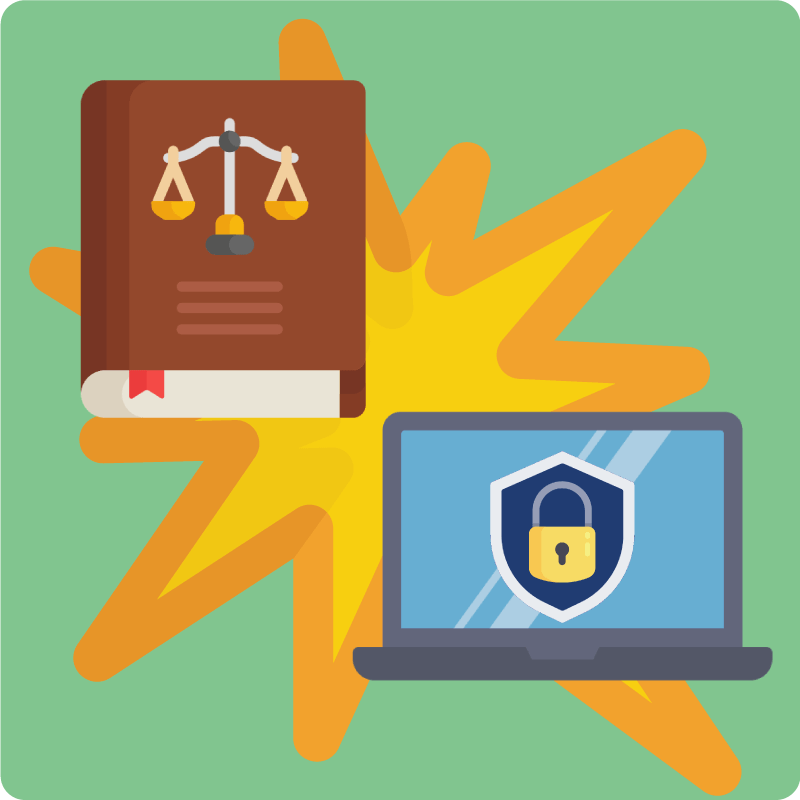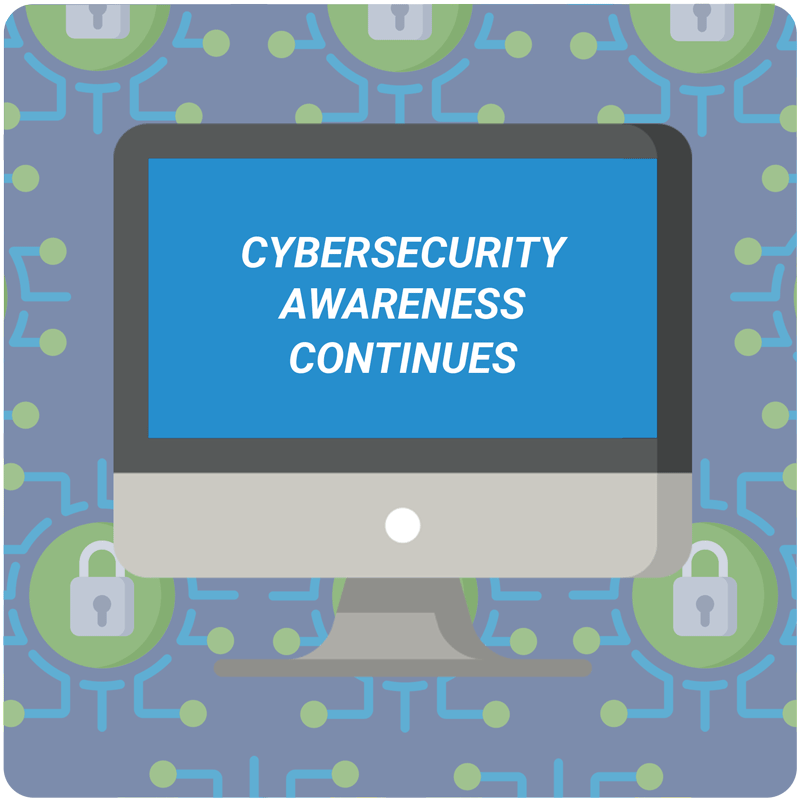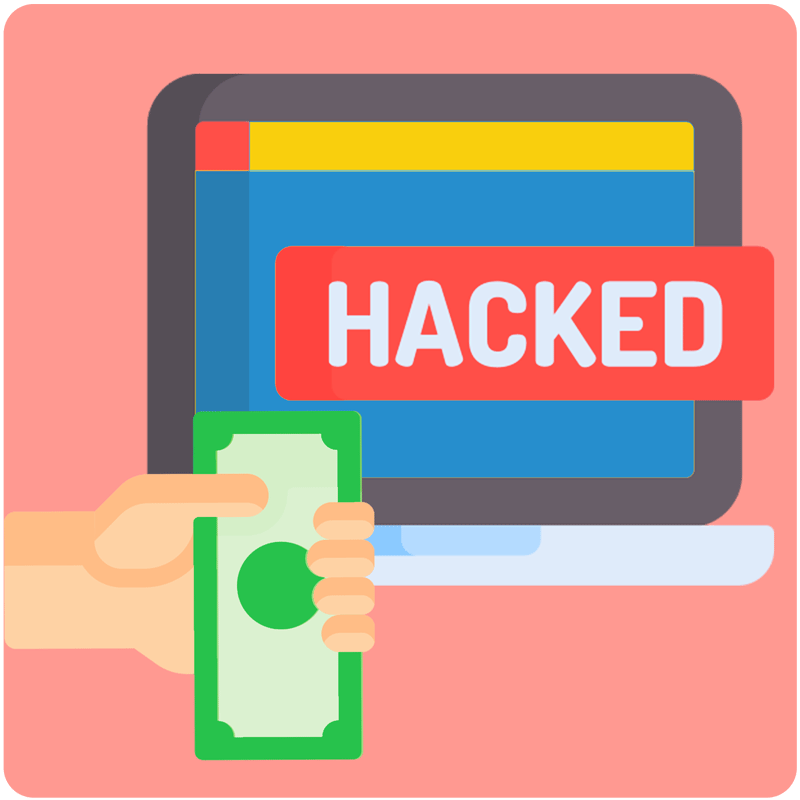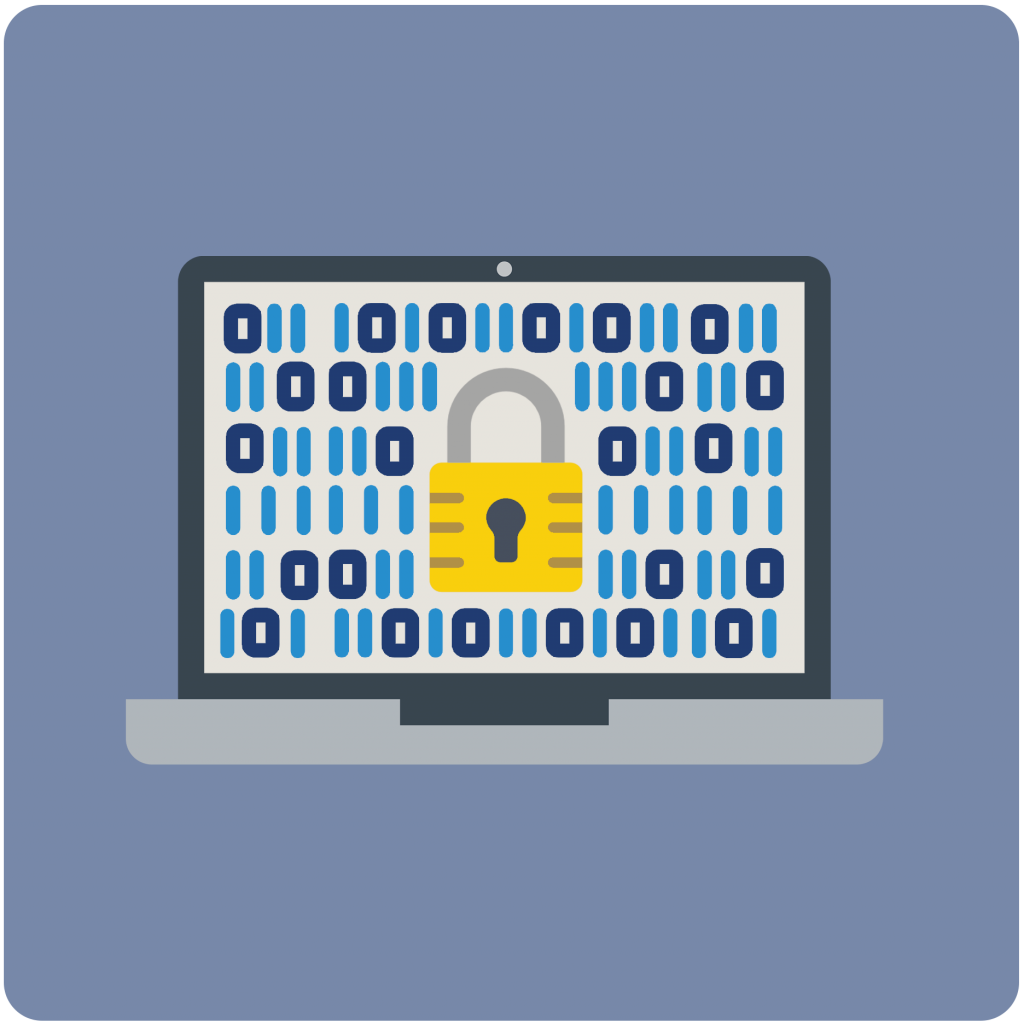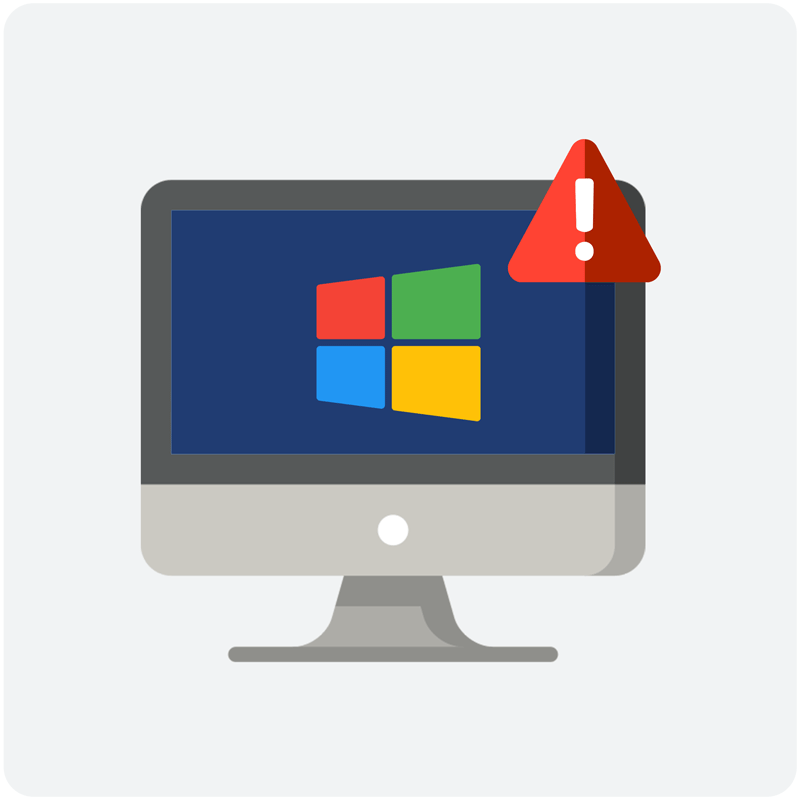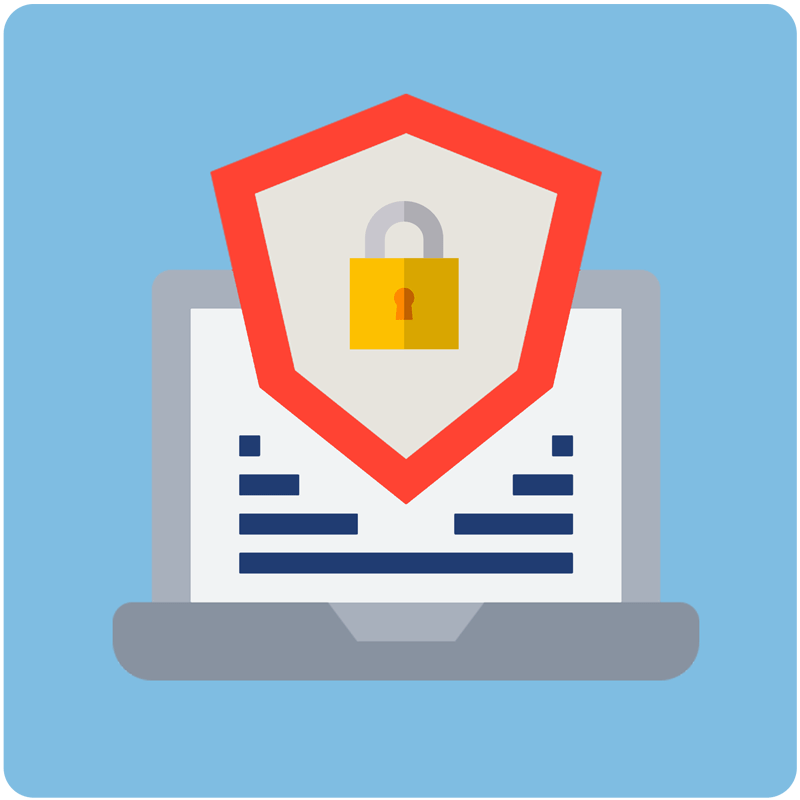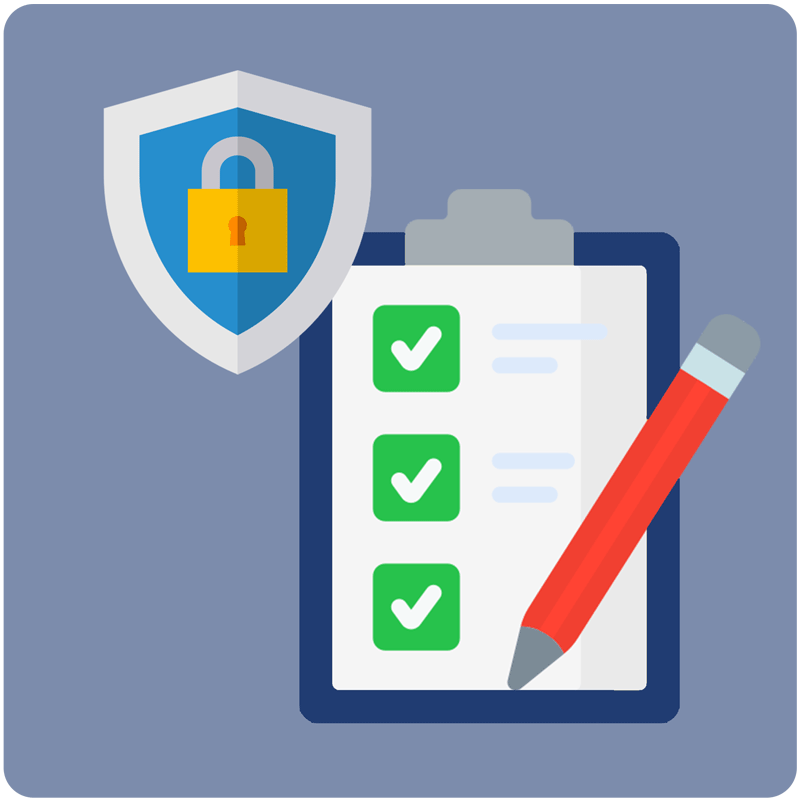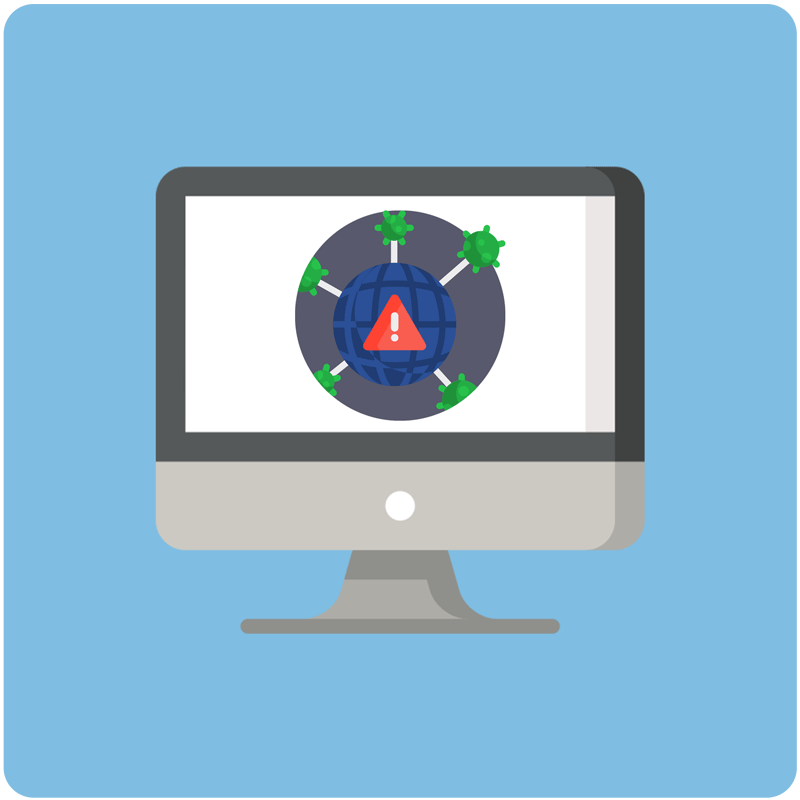December 29, 2020 Peanut butter and jelly, macaroni and cheese, rock and roll – there’s really no mistaking that some things are just better in pairs. While these might be the obvious examples to tag along with the old 80’s hit “It Takes Two to Make a Thing Go Right” there’s another dynamic duo that plays an important role in your practices’ daily operations: Compliance and Security. Compliance and security go hand-in-hand, making the perfect team when it comes to protecting patient data. But falling into the trap of thinking that achieving one means meeting the other can mean double trouble for your practice – so it’s important to understand the differences between the two and how to ensure you’re checking both off your list. What is compliance? Compliance is kind of like the bread and butter of your practice. It essentially focuses on the regulatory requirements involved in the protection of sensitive patient data – meaning that you not only have a secure technical environment but also have the know-how and documentation to prove it. Compliance is a comprehensive set of standards that practices must meet to avoid fines but should be viewed as more of a baseline when it comes to security, not the end all be all. Complying with HIPAA means meeting various requirements outlined in the HIPAA Security and Privacy Rule – but there’s more to the story when it comes to ensuring that patient data is fully protected. What is security? Security is the whole system of policies, processes, and technical controls specific to your practice. The goal of security is to ensure the best possible protection of the confidentiality, integrity, and availability of patient data – which in the age of technology means constantly updating to mitigate the risk of ever-changing threats. When we think of security we often think of locks on practice doors and passwords on computers but those safeguards only brush the surface of true security. Having the proper technical safeguards in place, and staying up to date on any new threats, such as the recent threat to Microsoft Exchange vulnerabilities knowing how to properly mitigate a potential threat, and staying educated are just some ways to meet your practice’s security needs. So, what’s the difference? While both are crucial in protecting patient data, security and compliance are not one and the same. The key distinction between the two is that compliance requirements are a bit more predictable whereas security standards are rapidly evolving with current risks and threats. This, unfortunately, means that even if you check off each of the compliance requirement boxes doesn’t exactly mean that your practice is 100% secure – which is why you are still at risk for a cyberattack even if you have a complete HIPAA compliance program in place. Why you need both! Just like Batman and Robin, when you put the two forces together – they’re pretty unstoppable. And with cyberattackers playing the role of the modern-day villain, establishing strong compliance AND security programs are the best, and perhaps the only way to ensure you’re taking every measure to protect patient data.
Cybersecurity Awareness Continues
October 29, 2020 Cybersecurity Awareness Month is wrapping up (believe it or not it’s almost Halloween, if you’ve lost track of the days this year like we have), but as the month ends the protections and measures you have in place to prevent a cyberattack should remain in full force. Just a quick glance at our HIPAA news page shows a growing list of recent HIPAA enforcement efforts, many stemming from cyberattacks that could have been avoided. Couple that with growing cyber threats during COVID-19 and you have yourself a pretty good idea of why cybersecurity should stay top of mind for months to come. We know that the word ‘cybersecurity’ can be a little vague – and even daunting – so here’s a recap of the latest and greatest threats to watch out for: Ransomware Activity Phishing Schemes Missing Key Technical Safeguards Properly Mitigating Potential Threats Staying Educated Not convinced cybersecurity is important? Just look at the data: We can probably agree that unless you put your practice in a bubble there really is no such thing as being 100% protected from every cyberthreat out there. Since totally cutting off your patient’s sensitive information is impossible, the next best thing is to have all the necessary technical safeguards and be aware of how to properly handle a threat.
Cybersecurity Awareness Month
October 1, 2020 Today may be the kickoff of Cyber Security Awareness month, but it’s never too early (though, possibly too late) to pay attention to the cyberthreats that surround independent practices. Now we know there’s probably plenty of other things that sound a little more exciting than cybersecurity – but the recent Cybersecurity Advisory from the Office for Civil Rights (OCR) highlights why having the right safeguards in place to secure your patient’s protected health information (PHI) is, well, kind of a big deal. With the rapid increase of cyber threats due to COVID-19 already on your mind, here’s some key takeaways appropriate to cybersecurity awareness month to help your practice handle a suspected cyber threat like a pro: We know that channeling your inner investigator and hunting for clues does sound like fun but knowing how to handle a suspected breach is just the tip of the iceberg when it comes to cybersecurity. While there’s no sure-fire way to avoid falling victim to a cyberattack, you can implement various technical safeguards to reduce the risk. Having a strong defensive line isn’t just important for football (cybersecurity isn’t the only thing we’re excited about this month) – it’s also imperative to making it a bit harder to access your practice’s data. Having multiple barriers to entry and a better understanding of how to detect a threat is the best way to protect your practice and following the right process after an attack will help to mitigate the damage done.
OCR Announces $1.5 Million Dollar Settlement for Systemic Non-compliance after a Hacking Incident Sparked Investigation
September 21, 2020 The OCR is certainly seeing $$$ this September. On top of the record five fines announced last week, the Office for Civil Rights (OCR) has just announced the latest settlement of a whopping $1,500,000 fine and 2-year corrective action plan for an orthopedic clinic out of Georgia. Athens Orthopedic Clinic found themselves in the HIPAA violation hot seat after a hacking incident sparked an OCR investigation beginning in 2016. The OCR found Athens Orthopedic had longstanding noncompliance with HIPAA rules, especially required technical safeguards, that led to the breach incident. On June 26, 2016, the orthopedic clinic was notified that their database of patient records had been posted online for sale. Two days later, a hacker contacted the clinic demanding money in return for the stolen database. After investigation, Athens Orthopedic determined that the hacker was able to gain access through a vendor’s credentials on June 14, 2016, and the hacker continued to access protected health information (PHI) for a month after the initial breach. On July 29, 2016, Athens Orthopedic filed a breach report with the OCR noting all of the sensitive PHI that had been hacked: names, dates of birth, social security numbers, and other personal medical information of the 208,557 patients affected. The breach initiated a full-scale investigation into the clinic’s HIPAA program, where the OCR discovered a laundry list of key compliance elements that the practice was missing: Cyber threats are an ongoing and rising threat to the healthcare industry. When practices lack the proper safeguards to secure their patients’ PHI, they put themselves at the top of hackers ‘easy target’ list (would your practice be posted if such a list existed?). Along with the fine, OCR Director Roger Severino emphasized that “Hacking is the number one source of large healthcare data breaches. Healthcare providers that fail to follow the HIPAA Security Rule make their patients’ health data a tempting target for hackers.” So how do you ‘hack proof’ your business? Well, you probably can’t completely prevent a hack given how quickly hackers adapt to new security measures, but your practice CAN go a long way to avoid being targeted (and getting slapped with a HIPAA fine) by ensuring your HIPAA compliance program – especially your technical safeguards – is up to scratch.
OCR Highlights Asset Log as Key HIPAA Recommendation
August 25, 2020 Earlier today, the Office for Civil Rights (OCR) sent out their seasonal Cybersecurity Newsletter on a very timely and relevant topic – the importance of keeping track of devices that contain electronic protected health information (ePHI). The OCR’s newsletter highlights two important things for independent practices: first, that having an asset log is the recommended method for tracking and thus safeguarding devices that contain ePHI, and second, that the OCR views practice’s lack of knowledge around where their devices are as a key area of concern. Part of the HIPAA Security Rule, practices are required to implement the necessary technical safeguards covered in the Security Risk Analysis (SRA) – including encrypting and securing their devices that contain sensitive ePHI. While an asset log isn’t directly required under HIPAA, the OCR highly recommends the creation and maintenance of an IT asset inventory to better understand where ePHI may be stored and strengthen overall compliance with these requirements. What does an Asset Log entail? We know it’s hard to keep tabs on everything within your practice, but when it comes to your devices keeping inventory is key. As the OCR’s newsletter highlights, the asset log should be a comprehensive list of all IT assets with corresponding descriptive information. The OCR notes that this list could include ALL devices, even those that don’t access ePHI directly, as they could contain ePHI unknowingly or be an entry point for cyberattackers to your network. Your list should include: When documenting these assets, Abyde recommends including all the following information: Additionally, it is important to regularly update your asset log as devices are moved around by location or by assigned staff members. Just like an SRA, your asset log should not be a ‘one and done’ project, and should instead be reviewed regularly. You should also track when devices are disposed of, as properly disposing of devices that contain ePHI is a common cause of HIPAA violations. No matter the size of your practice, creating and maintaining a thorough asset log isn’t an easy task. With a program like Abyde, our built in Asset Log covers all the OCR recommendations and then some – helping you track devices at high risk and making your IT inventory intuitive. Having the ability to access your asset log within a cloud-based solution like Abyde makes reviewing and updating inventory a breeze, and helps ensure you’re complying with all the right technical safeguards.
Properly Encrypting ePHI: What Your Practice Should Know
August 20, 2020 Even before COVID-19, electronic solutions were transforming the way practices work and communicate with patients and other providers. As technology continues to evolve within the healthcare industry, it’s important to understand how to properly secure sensitive protected health information (PHI) when stored or transmitted. What does encryption actually mean? Protecting patient data from cyberthreats goes beyond having appropriate passwords. It means having the right technical safeguards in place including properly encrypting any PHI created, stored, sent, or received by your practice. So what exactly is encryption? Encryption means that content containing sensitive data is made unreadable for anyone except those authorized to view the information. This process essentially uses a software or algorithm to ‘lock’ the data or written text and requires an encryption key to make the information decipherable again. What should be encrypted? So what should be encrypted? Simply put, the answer to this question is pretty much anything containing PHI. This includes data that is being sent to someone else such as a patient, business associate, or another provider. Examples of this include: Why does encryption matter? For a typical practice, your EHR system is likely already encrypted – but your EHR isn’t all that matters. All other laptops, external hard drives, servers, and communication systems are at high risk if they are not also properly encrypted to protect from cyberthreats. In fact, failing to encrypt devices has been the cause of various HIPAA violations. Recently, a covered entity in Rhode Island faced a $1,040,000 fine from the OCR on top of a 2 year corrective action plan. The violation resulted from a stolen unencrypted laptop, leading to over 20,000 patients data being exposed. Part of the reason for the hefty fine was the organization’s “systemic non-compliance” when it came to proper encryption of devices. The entire incident could have been avoided if the entity had the proper technical safeguards in place. With cybersecurity threats on the rise and electronic communication becoming more commonplace, it’s all the more important to ensure the protection of your patients’ information. Implementing encryption services is a great way to best protect your practice and prevent HIPAA violations. If using an external vendor for encryption, make sure to have the appropriate business associate agreement in place as well.
OCR Alert: Windows 7 a Growing Risk for Cyberattacks
August 13, 2020 Have you updated your Microsoft Windows version recently? If your answer is no, then you might be at a greater risk of experiencing a cyberattack. The Office for Civil Rights (OCR) in partnership with the FBI sent out an alert just this morning regarding the increase in cyberthreats to outdated computer networks, specifically the Windows 7 operating system (OS). Windows 7 went end of life (meaning it is no longer supported or patched by Microsoft) in January of this year. Because it is no longer monitored or supported, the OS is missing the necessary security updates to continuously protect against hackers. Utilizing the outdated system dramatically increases the risk of cyberattackers accessing your computer systems – including the sensitive patient data they house. In their alert, the OCR expands on the various vulnerabilities that come from failing to safeguard your practice’s computer network by continuing to use Windows 7, including that: Other factors that increase the current risk include the shift to working remotely and the less secure network connections typically used at home. It is highly recommended to upgrade any outdated computer systems as soon as possible to reduce risk. In addition to updating your operating system, ensure your anti-virus and firewalls are all up to date to best protect your devices from outside threats. While updating core operating software may mean additional costs and resources, the OCR emphasized the importance of following their recommendation in their alert, stating that, “these challenges do not outweigh the loss of intellectual property and threats to an organization.” While HIPAA does not specify a required operating system, meeting required technical safeguards does include keeping your systems secure and as protected as reasonably possible from cyber threats. In this case, that means having an active OS that is still receiving critical security updates. We highly recommend protecting your critical patient information and upgrading any systems necessary as soon as possible.
What the CISA Wants You to Watch For
May 21, 2020 Cyber threats in general but especially those affecting healthcare organizations have been a hot topic of discussion over the past few months. Recently, the Cybersecurity and Infrastructure Security Agency (CISA), along with the Federal Bureau of Investigation (FBI), and the Office for Civil Rights provided guidance on the most common technical vulnerabilities that have been exploited during 2020 and in particular during COVID-19. We know you’ve had a lot of information thrown your way lately, so to keep your practice up to speed and help you stay ahead of new vulnerabilities, here’s a brief overview of the bulletin’s highlights: As organizations begin to go back to work, it’s important to know that much like COVID-19 itself these cyber threats won’t just go away. Properly educating your employees on good cyber hygiene, doing routine checks and updates on security safeguards, and continuing to be on the lookout for any potential threats are vital in keeping your practice protected. Certain things your practice should be implementing right away are: For more information on the government’s guidance along with the mitigations provided to assist in ensuring the security of your practice view the full bulletin here.
Technical Safeguards for Cybersecurity
April 10, 2020 HIPAA has been around for quite a while – since 1996, in fact – and part of HIPAA law has always included required safeguards to secure all aspects of a medical practice’s protected information. With the rapid adoption of technology within the healthcare industry, technical safeguards included in HIPAA law are some of the most important for practices of all sizes to implement. Technology has enabled businesses in the healthcare industry to move operations offsite. In light of the current public health emergency, allowing for access to all essential data without having to step foot into the office is vital to ensuring practices are ready to see patients after the social distancing rules are relaxed. While these advancements simplify and enhance your business operations, they have made a hacker’s job that much easier as well. Technical safeguards are the documented strategies and solutions that practices implement to secure electronic protected health information and control access to it. These include: When it comes to the question of which data actually needs to be safeguarded, the answer is pretty much all of it. Any data that is accessed by, sent to or received from other practices or authorized vendors need to be protected as well as any data that has traceable identification that can be linked to a patient. This sensitive data must be encrypted prior to sending or receiving. Encrypting data may seem like a daunting task, but at a basic level, it just means making PHI unreadable to anyone other than the intended parties. Recent Cyber Threats Tied to COVID-19 While ensuring your practice is prepared for a cyber attack is always important, cyber threats have been headlining the news a lot lately along with the current COVID-19 health emergency. Hackers are taking advantage of this time of increased public vulnerability as well as increased use of technology from unsecured networks while many people are working from home. Read up on common tactics utilized in these threats in our recent article. Over the past few weeks, including just yesterday, multiple government agencies have issued warnings regarding recent threats to cybersecurity. These attacks range from individuals posing as government officials seeking access to PHI to other various phishing and malware distribution schemes utilizing the current concern and fear around COVID-19 as hackers ticket into your sensitive data. Further guidance can be found in the public service announcement released by the FBI and yesterday’s bulletin from the CISA. Hackers aren’t just attempting to play the roles of OCR investigators, or focusing on sending you phishing emails – now your video-teleconferences are at risk too. Video chat apps have become increasingly popular whether it’s for telehealth appointments, office meetings, , or even just virtual happy hours with friends – it’s the best way to stay connected during this time of social distancing. Unfortunately, this added reliance on technology is just another way for scammers to attack. The FBI released additional guidance on defending against Video-teleconferencing (VTC) hijacking and “Zoom-bombing” which refers to attacks directly on the increasingly popular Zoom platform. Some noteworthy tips from this guidance include making sure your virtual meetings are private by requiring a password to gain access. Keeping these meetings private means keeping them off social media or other public-facing platforms so only provide meeting links directly to the individuals you want to be included. These attacks on video chatting software are especially important for medical practices to be aware of as just a few weeks ago the OCR updated their telehealth service regulations allowing doctors to use various communication apps to diagnose and treat patients while maintaining a safe distance. Practicing Good Cyber Hygiene When it comes to cybersecurity, it’s important to know what to look out for, how to report any potential threats, and most importantly how to keep your practice and your patient data safe. Just yesterday, CISA, the United States Department of Homeland Security (DHS), and the United Kingdom National Cyber Security Centre (NCSC) issued a joint release featuring additional guidance on how to spot potential threats. Important tips for safeguarding your practice’s security during this time of increased risk include: There’s a lot of good ‘cyber hygiene’ out there, but here are a few top tips to keep your practice operations clean: If you have questions about technical safeguard requirements, Abyde has a team of HIPAA compliance experts ready and willing to help navigate your practice through these recent changes. If your practice is interested in learning more, sign up for one of our complimentary HIPAA compliance webinars where we’ll discuss HIPAA & COVID-19 from the comfort of your current remote work location.
COVID-19 Brings Increased Risk of Cyber Attacks
March 19, 2020 The situation around COVID-19 (Novel Coronavirus) has continued to evolve across the globe, including recent changes to HIPAA & Telehealth as well as how to share PHI during this public health emergency. Late last night, the OCR & Cybersecurity and Infrastructure Security Agency (CISA) released another bulletin regarding new concerns around maintaining the security of your data and PHI. Scammers frequently increase their attacks during a public emergency, when they know that there is an increased dependence on digital communications and heightened fear and uncertainty, and the bulletin included several recommendations to protect your practice. The CISA warned individuals of the increased cyber threats related to the Coronavirus. They recommend caution when receiving any emails with a subject line related to COVID-19 as well as anything containing an attachment or hyperlink, as these are often directed to fraudulent websites asking individuals to provide private information. To exercise proper security measures, the CISA offered specific precautions to take: Leveraging public fear during a health emergency isn’t the only tactic that is used by scammers during this Coronavirus outbreak. As most companies have decided to move to remote operations, there has been an even larger window for cyber threat actors to hack into private information as sensitive data is now accessed through unsecured networks. Good “cyber hygiene” to instill in your practice includes: Protecting PHI from cyberattacks also means ensuring you are aware of the HIPAA regulations surrounding public health emergencies. Reminding employees of appropriate access to PHI and implementing controls such as applying additional protections for COVID-19 health records are especially important. As the news continues to focus on the Coronavirus, individuals who have access to public health records may become curious about the health of those around them. It is important to ensure that PHI is only accessed when necessary, especially on less secure wireless networks such as those used when working from home.
